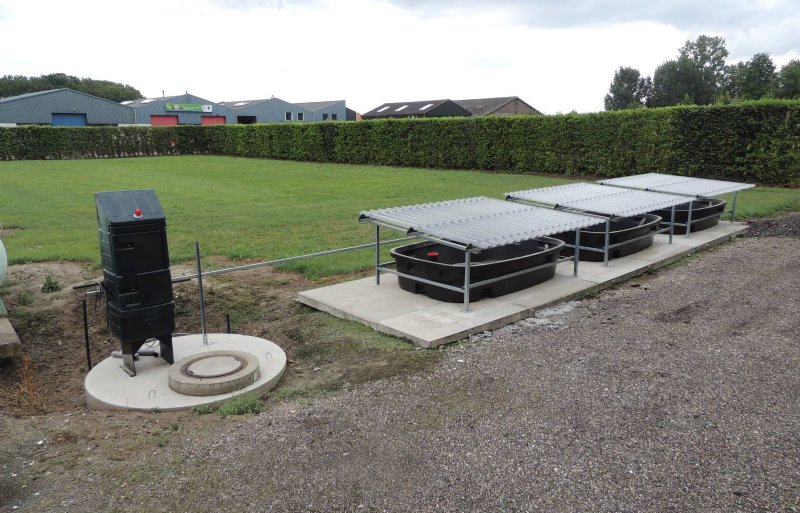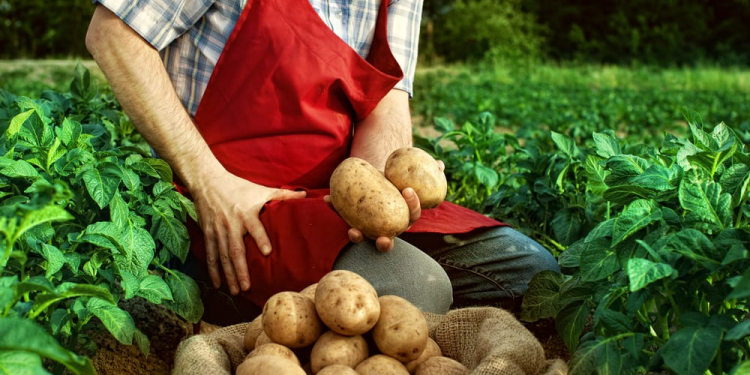Wim Le Grand is employed as manager at a vof in which two independent arable companies have housed their machines. Mutual trust and common sense form the basis for cooperation.
There is no successor on the arable farms of the Becu family in Groede and the Haartsen family in Schoondijke. Tonie Becu owns the company with her three daughters. All the daughters chose a different profession, but they want to continue the business with their mother. Daughter Carlien does have the farm as a base for her recreational company Extraordinary Active.
Close to the Farm of the Becu family is the arable farm of Izaak Haartsen. He is over 65 and has no successor.
Vof with manager
The families put the machines in a vof, of which Wim Le Grand is manager. ‘We have our own payroll company’, laughs Carlien Becu. Both companies have together 280 hectares.
It’s a bit over and over again, but last fall it was a sport
CARLIEN BECU, ARABLE FARMER IN GROEDE
The merging of the machinery meant that there was a lot of double. The double machines went on sale. “We only kept the two syringes and the two shear lines,” says Le Grand. He does most of the spraying himself, but haartsen also regularly sprays the crops.
Acreage onions shrinks
Certainly in the first years, two syringes were not an unnecessary luxury with over 60 hectares of potatoes and more than 60 hectares of seeding onions. Since then, the acreage of onions has been shrinking. Haartsen now grows 32 hectares of onions and Becu 10 hectares. ‘We’re going to reduce that a bit to probably 25 hectares in total,’ says the manager. ‘I can’t do more work if Izaak is gradually starting to do less.’
The vof could also be done with one sprayer. But the partners are still waiting to buy a new syringe because of the changing emission regulations that the syringes have to do. That is why they have provisionally opted for a double cultivation-free zone.
Quick switch
The two atrains make it possible to quickly switch from one owner’s plot to that of the other owner. ‘Then you won’t waste any time driving back and forth from the aure line’, says Le Grand. “We can now shoo 2,000 tons without having to move anything.”
To ensure that grubbing can always continue when needed, the vof has four generous tippers: three 18-ton tippers and a 16-tonner.
Own building plan
Both companies each have their own building plan. They are somewhat aligned, for example when choosing early or late varieties. “It has to be practical,” says the manager. “You think that’s a sport, doesn’t you?” says Carlien Becu. “Anything you can send, you have to do,” Le Grand responds.
But it does not go so far that the partners, for example, choose to grow late-term potatoes on one farm and on the other seed potatoes or early consumer potatoes, which can already be harvested in the summer. ‘For early potatoes you have to be able to irrigate on this soil’, explains the manager. ‘You can’t do that everywhere.’
What to play
Occasionally the collaboration offers opportunities to ‘play some’, for example if there are just too few sugar beets growing on one company and on the other company just too much.
For the day job, Le Grand sees both companies as one company with 280 hectares. He usually starts the day in the office at haartsen’s company. That company is also the workshop. If he’s not working on the land, that’s why he’s usually at that company. He regularly consults with Haartsen on cultivation technical matters.
Responding to weather conditions
Common sense and trust in each other form the basis for cooperation. Especially when the work is exciting because of the weather it comes down to that. When the grain is ripe, the main focus is on which plot is the first to arrive, regardless of which farm it belongs to. This is also the case with the harvest of other crops. ‘You have to drive if it’s good’, says Izaak Haartsen. ‘Sometimes that’s a compromise.’
When harvesting potatoes and onions, Le Grand also tries to organize it in such a way that it is the turn of one company and the other. “It’s a bit over and over again,” becu says. “But last fall it was a sport,” she adds.
Little discussion
The question of what should happen when almost never leads to much discussion. ‘Most of the time it’s mostly self-involved,’ says Le Grand. “But enough has gone wrong.” Becu: ‘Then it’s important to keep talking to each other.’ Le Grand: ‘If you don’t trust each other, it’s done right away.’
Becu stresses that it is definitely a matter of trust for her family: “Because we’re at a distance.” “Always play it open,” says Le Grand. Becu: ‘Then you’ll last the longest.’






